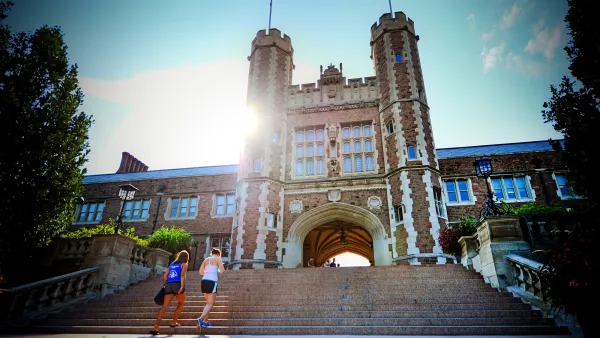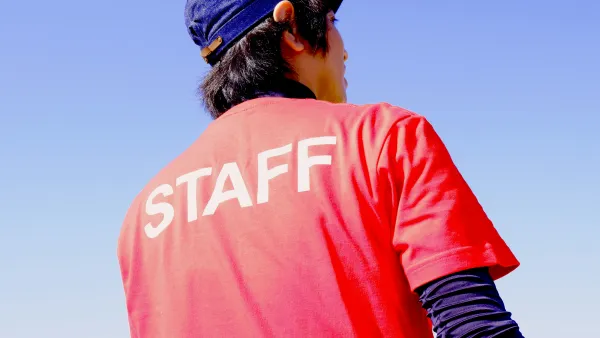Why should I choose WashU for a pre-college program experience? This is a question we often hear from parents and students. Becki Baker, director of pre-college programs, sat down to talk about how our programs prepare students for college success.
Many individuals talk about the importance of college readiness. What does college readiness mean and how is it developed in our programs?
For us, college readiness is preparing our pre-college students for a successful transition to a two-year or four-year post secondary institution. It is a set of skills, knowledge, and behaviors that allow for not just successful enrollment, but also degree completion. And while academic readiness is key, we also believe that social and emotional preparedness is just as important. We focus on ten specific college readiness skills in our programs: critical thinking, self-advocacy, networking, independent living, time management, self-reflection, decision-making, group collaboration, communication, and cultural understanding. These skills are the foundation for all of our enrichment programming from nightly social events to college advising workshops. Whether students enroll in credit or noncredit course work the benefits are the same. Students gain valuable experience managing time, studying for exams, writing papers, and interacting with instructors. In 2022, 90% of our program attendees reported an increase in three or more of these skill areas with independent living, communication, time management, and self-reflection being the top reported areas of growth.
A big draw to our programs is that courses are taught by WashU affiliated instructors and our program staff are all from WashU. Why is that so important?
One of our primary goals is to introduce students to the undergraduate experience through Arts & Sciences at WashU. When our pre-college students step on to campus, we want them to truly experience WashU both inside and outside of the classroom. Pre-college students stay in the same residence halls, eat in the same dining spaces, and study in the same libraries that our undergraduates do. They enroll in the same classes and walk the same halls. Who better to support our students than the instructors that teach our undergraduates during the academic year or the program assistants that come from within our WashU community. The unique insights and guidance these individuals share with our pre-college students is key to finding success in our rigorous academic environment.
"When our pre-college students step on to campus, we want them to truly experience WashU both inside and outside of the classroom."
Tell us a little bit more about the one-on-one support for students.
We know that attending a pre-college program can be an exciting, but sometimes challenging experience. For some, this may be their first time away from home, sharing a room, or navigating food choices. We also recognize that each student will have their own individual needs during the program. Each of our program assistants are assigned 8-10 pre-college students that they meet with regularly. These interactions might be a quick chat over dinner, a group meeting in the common room, or a one-on-one discussion. Taking this time to check-in with our students is so important to ensure we are addressing concerns and providing the support students need to succeed.
Why is community building an important part of the program experience?
The opportunity to live on campus in one of WashU’s top-ranked residence halls is one of our pre-college students’ favorite aspects of their experience. In fact, it's one of mine as well! During the summer, I move my office to a space in the residence hall. It is so exciting to watch students develop their independence from making their own dining choices, choosing how to spend their free time, and even doing laundry. And most importantly, watching students make friendships and memories that last a lifetime. That is what is so incredible about our programs. Our commitment to creating a safe and welcoming residential community. We hope our students find our residential community a place where they feel free to pursue knowledge, to live with respect and integrity, and to express themselves. And we hope that when researching and applying to colleges, our students list community building as a top factor when deciding what school they want to attend.




